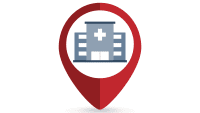Magnet facilities provide nurses with opportunities for professional and personal growth, which leads to better patient care and greater job satisfaction. And, of course, greater job satisfaction leads to retention of experienced staff and low turnover.
The Magnet Recognition Program® was developed by the American Nurses Credentialing Center to recognize healthcare organizations committed to nursing excellence.
The Magnet designation process includes the appraisal of qualitative factors in nursing, called the Forces of Magnetism. When a facility attains Magnet status, the Magnet process doesn’t stop. The staff and leaders must continue working to keep the Forces of Magnetism alive and well within the facility and the community it serves.
Here are the 14 Forces of Magnetism:
1 Quality of Nursing Leadership. The organization has knowledgeable, strong, risk-taking nurse leaders who also act as staff and patient
advocates.
2 Organizational Structure. Through shared decision-making with strong nursing representation, the organizational structure is dynamic and responds to change.
3 Management Style. The organization and nursing leaders foster an environment that encourages and values participation and feedback from staff at all levels.
4 Policies and Programs. Salaries and benefits are competitive. Staffing models are creative and flexible enough to support a safe and healthy work environment with ample opportunities for professional growth.
5 Professional Models of Care. The models of care give nurses the responsibility and authority for providing direct patient care. The models take into consideration patients’ unique needs and provide skilled nurses and adequate resources to accomplish desired outcomes.
6 Quality of Care. Quality is the driving force for nurses and the organization. Nurses in leadership positions are responsible for providing an environment that positively influences patient outcomes.
7 Quality improvement. The organization has processes to measure quality and programs to improve it.
8 Consultation and Resources. The organization provides adequate resources, support, and opportunities for using experts, particularly advanced practice nurses. Nurses’ involvement in professional organizations and among peers in the community is promoted.
9 Autonomy. Nurses are expected to practice autonomously based on competence, professional expertise, and knowledge, consistent with professional standards. Independent judgment is exercised in the context of interdisciplinary and multidisciplinary approaches to patient care.
10 Community and the Healthcare Organization. The healthcare organization is a strong presence in the community, forming partnerships that, in turn, enhance patient outcomes.
11 Nurses as Teachers. Professional nurses are involved in educational activities in the organization and community. A development and mentoring program with staff preceptors for all levels of nursing staff or students is in place. The patient education program meets the diverse needs of patients in all care settings of the organization.
12 Image of Nursing. The services provided by nurses are characterized as essential by other members of the healthcare team. Nurses are viewed as integral to the healthcare organization’s ability to provide patient care. Nursing effectively influences system-wide processes.
13 Interdisciplinary Relationships. A sense of mutual respect is created as collaborative working relationships contribute to meaningful clinical outcomes.
14 Professional Development. The organization values and supports professional and personal growth and development of the staff.
“Reprinted with permission from the American Nurses Credentialing Center (ANCC). All rights reserved.”

















